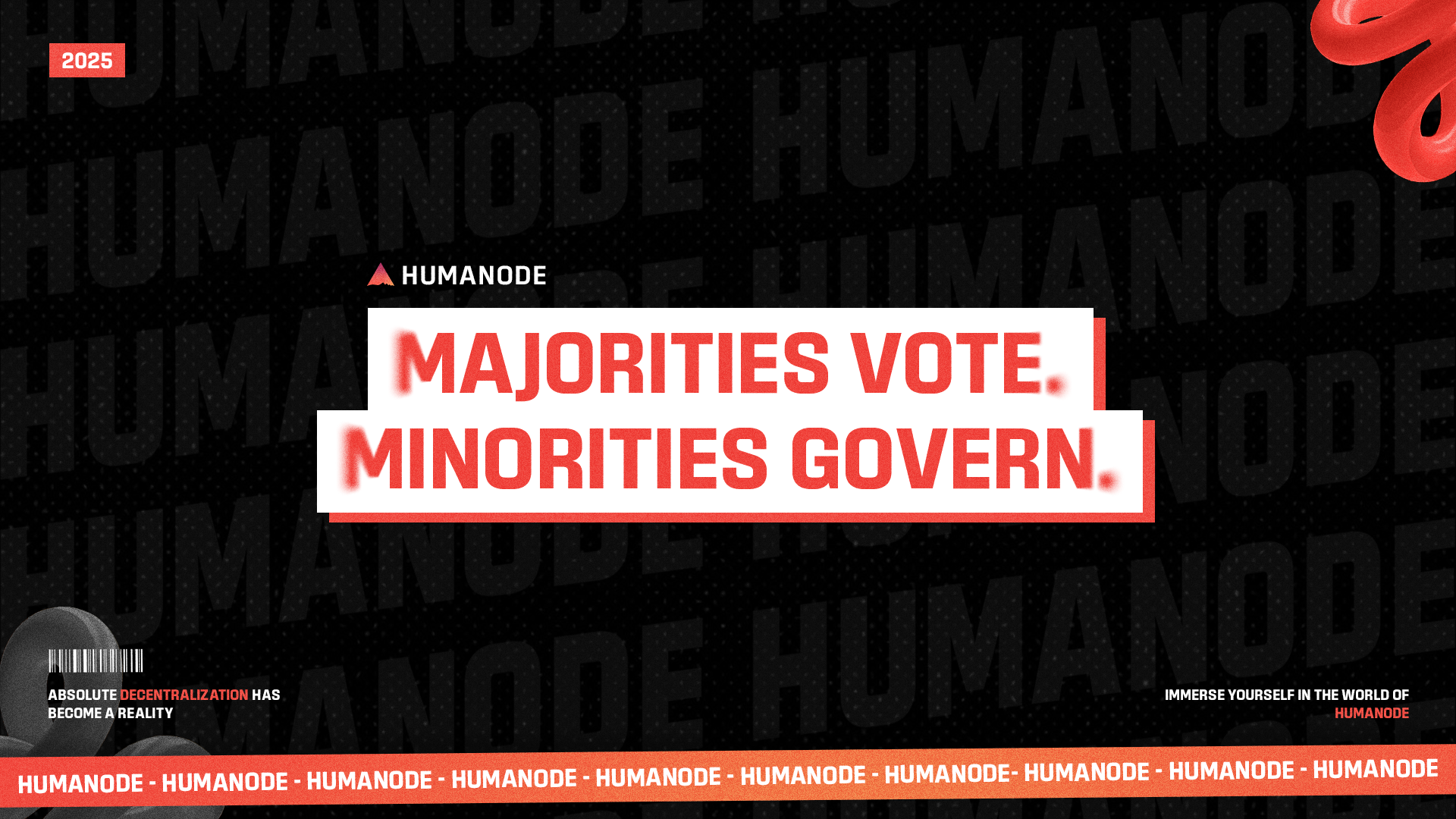From Parliaments to Protocols - Why power keeps drifting upward

Some stories repeat themselves so reliably that they begin to feel less like history and more like gravity. Governance, whether practiced in parliaments or encoded into blockchains, is one of those stories.
For most of the last century, democratic societies had believed they solved a hard problem: how to build institutions where ordinary people could meaningfully shape their collective future. Crypto’s early architects thought they were attempting something similar, only this time through software rather than constitutions.
But by late 2025, the promise looks eerily familiar on both sides. A handful of power-users steering the ship. Delegates acting like unelected ministers. And big whales casting shadows over every vote. And citizens, whether they hold passports or governance tokens, increasingly sense that “participation” has become a symbolic gesture rather than an instrument of influence.
The story is not that democracy is dying, nor that crypto governance has failed.The story is that both systems reveal a deeper truth about how power behaves, and why it is so hard to keep it in the hands of the many.
The democratic recession
If political scientists still believed in linear progress, the last two decades cured them of the habit. Freedom House’s latest survey logged the nineteenth consecutive year of global democratic decline, an astonishing stretch for a measure created to track the “health” of liberal governance. Sixty countries deteriorated in 2024; only thirty-four improved. Election manipulation has grown more sophisticated. Parties fracture. Courts polarize. Violence, once an aberration, is now simply risk-adjusted into campaign strategy.
The diagnosis is rarely subtle. Inequality is now the defining economic fact of the early 21st century. Across OECD nations, the top ten percent earn more than eight times the bottom ten percent.
Oxfam’s 2025 report estimates that the world’s richest one percent have added nearly $34 trillion in wealth since 2015, enough, if redistributed, to end extreme poverty multiple times over. In the United States and Britain, polling repeatedly finds that a majority of citizens believe political decisions reflect the preferences of the wealthy long before they reflect anyone else’s.
The idea that all citizens carry equal weight in a democracy remains legally true, but it is socially unrecognizable.
Most people simply do not have the time, money, or networks to exert anything more than a token influence. Those who do, political donors, media owners, and organized interest groups, shape the agenda long before a single vote is cast.
So it would not be wrong to say that democracy still counts everyone equally. It just doesn’t listen to everyone equally.
On the internet, we rebuilt the same thing. Even though crypto governance was supposed to escape this dynamic. It didn’t.
The idea was elegant: decisions made by token holders, recorded on-chain, free from political capture, and executed automatically. But the empirical record of 2023–2025 reads more like political déjà vu than a breakthrough.
Most major DAOs recorded participation rates well below the healthiest democracies, often between 15 and 25 percent. In many cases, fewer than ten percent of token holders ever voted. Delegation, meant to improve efficiency, created its own small class of “governance professionals” who wield disproportionate influence. Studies of Uniswap, Compound, Aave, and ENS showed that ten to twenty percent of addresses could determine the fate of most proposals. Whales vote when outcomes intersect with their financial interests; otherwise, governance lies dormant.
Researchers now use phrases once reserved for fragile political systems:“shadow governance,” “elite coordination,” “the illusion of democracy.”
In a different era, such warnings would have read as exaggerated. Today, they sound like an understatement.
Why power pools
The uncomfortable truth is that none of this comes as a surprise. It is predictable.
Large populations suffer from coordination decay. Small groups, when well-organized, do not.
In both real-world democracies and on-chain governance systems, the majority has diffuse, low-intensity preferences. A small minority has high-intensity preferences. The minority shows up. The majority doesn’t. The result is not corruption; it is mathematics.
Participation is expensive. Time is expensive. Expertise is expensive.
And so the work of governance, reading, debating, evaluating, deciding, falls to the few who can afford the cost.
Minority rule is not an aberration. It is the default condition of collective decision-making.
Unless actively countered, power settles where attention flows.
Attempts at correction
Both worlds are experimenting with ways to resist this gravitational pull.
Nation-states are reviving ideas that predate modern democracy: citizens’ assemblies chosen by sortition, participatory budgeting in cities, and deliberative councils that sit alongside parliaments. They are imperfect solutions, but they confront the problem directly: a society too large to expect equal participation needs institutions that can synthesize collective wisdom without defaulting to elite capture.
Crypto networks have been running their own experiments. Lido introduced dual governance to limit unilateral control by its token holders. Optimism created a bicameral structure with a “Token House” and a “Citizens’ House” designed to balance economic and human interests. Polkadot iterated its governance to decentralize proposal pathways and adjust quorum biasing. Cosmos Hub has renegotiated what shared stewardship means.
Identity-aware voting, long dismissed as dystopian, has begun re-entering the conversation, pushed in part by projects exploring biometric Sybil resistance. Humanode’s emerging Vortex framework takes a different route: one-human-one-vote at the base, layered with competence, contribution, and responsibility. It treats decentralization not as a slogan but as a question of legitimacy: who gets to decide, and why?
These are early attempts, and none have solved the underlying problem, but it is telling that the experiments are converging on the same themes:
- Humans instead of wallets.
- Cognitocracy instead of capital.
- Layers instead of flat voting.
- Accountability instead of ambiguity.
If power cannot be eliminated, it can at least be structured.
What if this is the best we can do?
No governance system can permanently keep minority rule out. Given enough time, every structure hardens into patterns of influence. The distance between the many and the few never disappears. The real question is what shape we are prepared to live with.
The choice is not between perfect equality and captured systems. It is between power that is hidden and power that is exposed. Between influence that is inherited and influence that must be earned and re-earned. Between arrangements that drift into unaccountable control and arrangements that are forced, by design, to pull themselves back into alignment.
The future may not be governed by everyone. But it does not have to be governed by the same insulated few.
If democracy is now a minority sport, then the work of this century - for states and networks - is to decide what kind of minority we will tolerate: the one selected by inertia, or the one engineered to remain visible, constrained, and answerable to the people it claims to represent.
It is a narrower ambition than the last century’s ideals promised, but it is also closer to how power actually behaves – and therefore the only kind of ambition with a chance of holding.

